On the House:
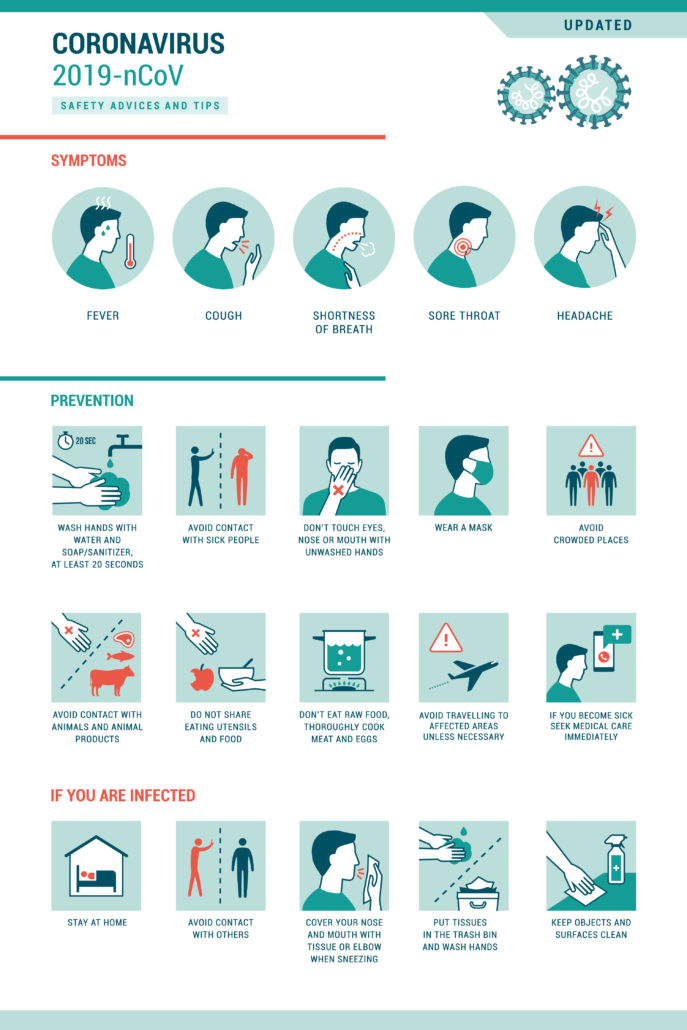
- Prime Minister Robert Abela just announced a partial lockdown after 3 local-to-local transmission cases have been reported. Health officials in Malta are recommending everyone participates in social distancing. Here’s how to prepare your home for this:
- Coronavirus cannot be stopped, but it can be slowed down through social distancing. Here’s why this is so important for Maltese homeowners. If you are you feeling sick or have been asked to quarantine, here’s what to keep in mind.
- The Chamber of Commerce is demanding the Maltese government assists employers by paying at least two-thirds of quarantine leave. Read more here.
- People over 60, and especially over 80, are particularly vulnerable to severe or fatal infection. Other groups are also particularly vulnerable to the Coronavirus disease, keep an eye out on who.
- From imposing quarantines to total lockdowns, countries around the world are taking drastic measures. We also take a look at the status around the globe.
- Within weeks, the virus brought the wheel of the global economy to a halt. This is what we have discovered so far about the Coronavirus disease (COVID-19).
How to prepare your home for a Pandemic:
Malta will close all bars, restaurants, gyms, casinos, cinemas and bingo halls as of today, Prime Minister Robert Abela has announced.
Restaurants will still be able to provide deliveries to people’s homes.
The Prime Minister’s decision, intended to ensure as much social distancing as possible, comes shortly after Malta confirmed its first three locally transmitted cases of the COVID-19 coronavirus.
He said these new measures, recommended by the public health authorities, are intended to slow down the rate of new coronavirus cases and will hopefully prevent the government from imposing a total lockdown.
Social distancing means limiting all kinds of interactions with other people – be it friends, relatives or at the market – wherever possible. That also means severely limiting the amount of shopping trips you go to. With this in mind, here’s some supplies you should keep in mind and handy in your home:
Food:
- While you may think it’s a bit panicked to stock up on canned supplies like the apocalypse is coming, keep in mind that meal options disappear quickly when you’re eating three meals a day at home.
- Get enough food to last you two weeks without a trip to the market.
- Stock up on non-perishables that will keep you fed for days, like canned beans and tuna that can be added to meals easily for protein.
- Frozen vegetables are also a great bargain: Throw them in the oven with olive oil and seasoning.
- And of course, grab enough coffee to keep yourself caffeinated through the stretch.
Medical:
- If you have medicine you need on a daily basis, be sure your prescription will last through the quarantine period.
- Perhaps the most important thing of all, if you or anyone in your family who is also quarantined has any kind of medical condition that requires medication, make sure you have enough supplies because that could be life-threatening.
- Keep in mind the regular pharmacy items you may need during that time, like vitamins and panadols.
- If you have a baby, stock up on diapers, baby food, and formula.
Household
- The CDC also advises keeping a stash of cleaning supplies, like paper towels, disinfectant, and laundry detergent.
- Sanitizing wipes and sprays are great for frequently touched surfaces like tables, doorknobs, light switches, toilets, and faucets.
- The CDC has a list of household cleaners and EPA-registered disinfectants labeled “Coronavirus fighting products.”
- While it’s highly unlikely that the situation will become this severe, all homes are advised to have a three-day supply of bottled water and batteries in case of emergency.
Animals:
- Before you’re overcome with fear that Fido will suffer from respiratory failure, keep in mind there has only been one reported case of an animal contracting COVID-19, and that’s a dog in Hong Kong who isn’t visibly ill.
- However, the CDC advises people who actually have COVID-19 limit interaction with pets and other animals.
- If you’re a self-quarantined pet owner, be sure to stock up on enough dog or cat food (and litter) to last your furry friend two weeks.
Wellness:
- Just because you’re stuck inside doesn’t mean you should neglect your mental and physical health.
- If you’re unable to get out to attend a therapy session, ask your therapist if they’d be willing to conduct a session over the phone.
- There are also virtual therapists on sites like Talkspace, who can be very helpful in a bind. If you’re feeling up to exercising, consider checking the fitness options on streaming services like Amazon Prime or Netflix, which offer hundreds of workout videos with your membership.
- You can also find a variety of free workouts ranging from yoga sessions to heart-pumping HIIT classes for no cost on YouTube.
Kids:
- Kids should not be left with grandparents, even if they both seem healthy. Coronavirus may take up to 12 days to show, and in some cases, one may not show symptoms but still transmit it to others who are more vulnerable.
- Try board and card games. On the surface it may not seem interesting, but mix it up! Kids love making up their own fun rules for tried-and-true standards, and you can create a tournament for the winner to receive a fun prize like staying up an hour later than the usual bedtime.
- Create a family collage or scrapbook. Do you have old magazines or catalogues lying around? Do your kids love to draw? Create a family board or book of words, ideas, images, character traits, or whatever you feel represents your family. There are no rules except having fun and being creative!
- Give a lesson on community. Go through your cupboards with your kids and pick out stuff you can drop off at your local food bank.
Discuss COVID-19 with your kids and explain how the infections and quarantines will affect many families and their ability to feed themselves.
Take the opportunity to teach your kids to help their community.
We believe fear should never dictate our actions, but we also believe prevention is better than cure.
Stock up on the above, practice good hygiene and pay attention to updates in your area. And if you find yourself at a Purell-free CVS, never fear, alcohol-based sanitizers are certainly handy on the go, but washing your hands with soap for at least 20 seconds is still the best way to avoid COVID-19.
Coronavirus (COVID-19) cannot be stopped, but it can be slowed down.
With all the information about coronavirus coming at us at full force, it can be hard to know what to do during this time. It might be a flu, but it did manage to shut down most countries.
Emerging consensus is that containment might have been possible a few weeks ago, but is no longer realistic. We are entering the pandemic phase which will be followed by seasonal recurrence of the disease unless and until we have a vaccine (which may still be 18-24 months away, if we are lucky).
With this in mind, the goal for every community moving forward is to slow down the spread of coronavirus.
First priority? Where possible, cancel everything and stay in. Social distancing is the most effective way to combat the coronavirus. This means staying away from friends and family too.
The key goal for every community is to “flatten the curve” by slowing down the spread of coronavirus through quarantines and social distancing. Should the virus spread quickly and our healthcare system fail to deal with the uptick in new cases, both mortality rates and costs can skyrocket.

As we try to slow the spread of the virus so as not to overwhelm our health systems, staying inside as much as possible is key.
Malta has already done a great job at this, rolling out tests with efficiency and keeping the public continuously informed.
7 Facts you need to know to slow down the Coronavirus
On Monday, Public Health Superintendent Charmaine Gauci announced nine new cases of coronavirus, bringing the total to 30. For the first time, three of the cases were local transmission, after people who came home from abroad infected co-workers. The three local transmissions are healthcare professionals, who contracted the virus from healthcare workers who tested positive after returning from holiday.
This leaves locals – especially older people – and their families wondering what extra precautions they should take. Several best practices have been recommended by the Centers for Disease Control and Prevention, the World Health Organization, geriatricians and infectious diseases specialists.
- Don’t rely on gloves. Gauci has warned against the misuse of gloves to prevent Covid-19 contraction, stating that they give a false sense of security. She said that gloves are normally used for the care of individuals in medical environments so as to prevent the transmission of viruses or bacteria from patient to doctor.
“If someone is using the same pair gloves constantly, it’s as if you’re not wearing any, because the contagion can still spread,” she said.
- Hand sanitisers do work – to an extent. The World Health Organisation has confirmed that hand sanitisers with over 60% alcohol DO work against corona viruses. Homemade hand sanitisers do not work, unless you know how to dilute alcohol correctly.
- While hand sanitisers do kill the virus, regular hand-washing with soap and water is still the best solution, especially after going to the bathroom, blowing your nose, coughing or sneezing. Wash your hand with soap, if this is unavailable use alcohol-based wipes and hand sanitisers.
- Visits with grandchildren are ill-advised. Cruises are out, as is nonessential travel. People are wrong to assume that if an underlying condition is well managed with treatment, they’re out of danger. Even those with conditions that are stable should take extra precautions.
- You may feel fine even if you have corona virus. One of the biggest takeaways from social distancing is that even if we may feel fine, it is still possible for us to carry the virus and spread it to others, so we should stay home.
- Have you travelled? Whether you used a plane, a train or a cruise, it is responsible to self-quarantine. Generally, the time between contamination and showing signs of the first symptoms can take anywhere between two to 14 days. The potentially long incubation period is a crucial reason while health authorities are urging a 14-day self-quarantine period.
- No, warmer temperatures will not kill the virus.
“At best, warm weather might influence the spread but it will not see the end of it,” said Dale Fisher, chair of the Global Outbreak Alert and Response Network coordinated by the World Health Organization.
“What is important is how effectively countries are isolating cases, removing people from communities. That’s the biggest factor, not the weather.”
Think you have a case of corona?
If you think you’re sick as a result of the novel coronavirus, you can help safeguard your loved ones and community by staying at home, except to get medical care.
The current guidance from the Centers for Disease Control and Prevention recommends that you call a medical professional if you notice symptoms and
- Live in or have traveled to an area with a known coronavirus outbreakor
- Have had close contact with someone who has traveled to an area with an outbreakor
- Have had close contact with anyone infected.
DO NOT GO to Mater Dei, the emergency department, health centres, private clinics, or pharmacies. Stay home and call the public health authority’s helpline 111.
You can call +356 21324086 for advice.
Avoid calling 112 unless it is a real emergency. That emergency line is crucial in saving lives in peril, and having it be flooded with calls on the coronavirus could have fatal consequences.
- you feel you cannot cope with your symptoms at home
- your condition gets worse
- your symptoms do not get better after 7 days
How to self-quarantine:
If you’re sick with coronavirus and your conditions aren’t severe, you’rel ikely going to be asked to self-quarantine. This means you should:
- try to keep at least 2 metres (3 steps) from other people in your home, particularly older people or those with long-term health conditions
- ask friends and family and delivery services to deliver things like food shopping and medicines – but avoid contact with them
- sleep alone if possible
- regularly wash your hands with soap and warm water for at least 20 seconds
- try to stay away from older people and those with long-term health conditions
- drink plenty of water and take everyday painkillers, such as paracetamol and ibuprofen, to help with your symptoms
Don’t
- do not have visitors (ask people to leave deliveries outside)
- do not leave the house, for example to go for a walk, to school or public places
The Facts Behind coronavirus disease 2019 (COVID-19), caused by severe acute respiratory syndrome coronavirus 2 (SARS-CoV-2).
The outbreak was first identified in Wuhan, Hubei, China, in December 2019 and recognised as a pandemic by the World Health Organization (WHO) on 11 March 2020
About the Corona Virus:

1. It is pretty large in size (cell is about 400-500nm diameter), so any normal mask (not just the N95 feature) should be able to filter it out. However, when someone who’s infected sneezes in front of you, it will take a great 3 meters (about 10 feet) before it drops to the ground and is no longer airborne.
2. When the virus drops on metal surface, it will live for at least 12 hours. So remember if you come in contact with any metal surface, wash your hands with soap thoroughly.
3. The virus can remain active on fabric for 6-12 hours. Normal laundry detergent should kill the virus. But if you are really worried, you can add some non-chlorine bleach or oxygen bleach . For winter clothing that does not require daily washing, you can put it out under the sun to kill the virus.
Groups Especially Vulnerable to the Coronavirus
For most members of society, coronavirus may only cause some flu-like symptoms, but for vulnerable groups, coronavirus is likely to need serious medical attention. With this in mind, we must do our best to ensure as few of these people as possible get Covid-19. Should many cases that require hospitalisation occur at the same time, our hospitals may not be able to cope, risk the further proliferation of the virus, and skyrocket economic costs.
You are more at risk of serious illness if you catch coronavirus and you:
- are 60 years of age and over
- have a long-term medical condition – for example, heart disease, lung disease, diabetes, cancer or high blood pressure
- have a weak immune system (immunosuppressed)
If you have a weak immune system,
There are many things that can cause a weak immune system (immunosuppressed).
These include:
- cancer treatment
- treatment for autoimmune diseases, such as rheumatoid arthritis, lupus, multiple sclerosis (MS) and inflammatory bowel diseases
- HIV
- having an organ transplant or a bone-marrow transplant
Other lung viruses can cause severe illness in people who have a weak immune system. This is likely to be the same for coronavirus. This is why you should take extra care if you have a weak immune system. This is similar for other infections, such as flu.
Phone your doctor if you have any symptoms of coronavirus and are concerned.
Continue to attend for any planned treatment, unless you have been told not to. If you have been in close contact with someone with coronavirus, phone the hospital before your appointment.
The symptoms of the pneumonia caused by Coronavirus:
1. It will first infect the throat, so the throat will have the dry sore throat feeling which will last for 3 to 4 days
2. Then the virus will blend into the nasal fluid and drips into the trachea and enter the lungs, causing pneumonia. This process will take 5 to 6 days.
3. With pneumonia, comes high fever and difficulty in breathing. The nasal congestion is not like the normal kind. You will feel like you are drowning in water.
It’s important to go seek immediate medical attention if you feel like this.
Why Social Distancing?
The term “flatten the curve” refers to the act of dispersing the burden on our healthcare system by slowing down local transmission of the virus. By imposing quarantines and social distancing, the number of sick people remains low enough at every given point for the hospitals, doctor and healthcare infrastructure to effectively manage.
In an article, the Washington Post illustrated through simulations how extensive social distancing is perhaps the most effective way to combat the coronavirus disease. Below, four figures showcase the efficiency of different measures in combatting the virus.
The light blue area refers to people who do not get the virus, the brown curve represents the number of people who catch the virus, whereas the violet part denotes people who catch but then fully recover from the virus.

Doctors in Malta must consider using video-calls to conduct sessions.
While many young people can do without nonessential doctor visits, many older adults have issues that require regular follow up, such as dementia, Parkinson’s disease, falls and heart problems. Skipping visits might allow these conditions to spiral out of control, so it would be wise for doctors in Malta to consider finding ways to communicate and assess their patients online to bridge the gap. Most senior citizens in Malta have access to Facebook or Whatsapp, which should make a video-call relatively easy. Payments required can be recorded and then paid at a later date. Younger kids and tech-savvy people should consider giving their older relatives a quick tutorial on how to accept a video-call.
“Burden of quarantine secretly placed on businesses.” The chamber alleges.
Government’s measures to help businesses weather the economic impact of the COVID-19 coronavirus will have “no impact and are no way close to what businesses need to sustain jobs”, the Chamber of Small and Medium-Sized Enterprises has warned.
“The government seems not to be understanding the dire situation Maltese businesses are in. Businesses need real measures now and today as they will not be able to sustain their workforce any more,” the Chamber said.
The majority of the chamber, comprised of a plurality of business leaders in Malta, accused the government of secretly placing the burden of quarantine leave on the businesses.
“The Chamber of SMEs pertinently points out that this means that government wants employers to bear the cost entirely and for the days to be added over and above the current employee leave entitlement.”
“The government must now put money where its mouth is because talk is cheap, and time is running out.”
Around 5% of the Chamber’s members have begun reporting redundancies, while another 5% have released people on unpaid leave. Approximately 20% are experiencing problems in paying their wages.
With no cash flowing in from turnocver, measures by the government offer only a temporary lifeline, the chamber warned.
The Chamber also called on the government to immediately cover two-thirds of businesses’ wage bill across the board, including self-employed. There should also be moratoria from banks for loan and overdraft repayments for the next few months.
A suspension of taxation, moratoria on fines, and guarantees of transportation of goods should also be secured.
The situation around the globe:
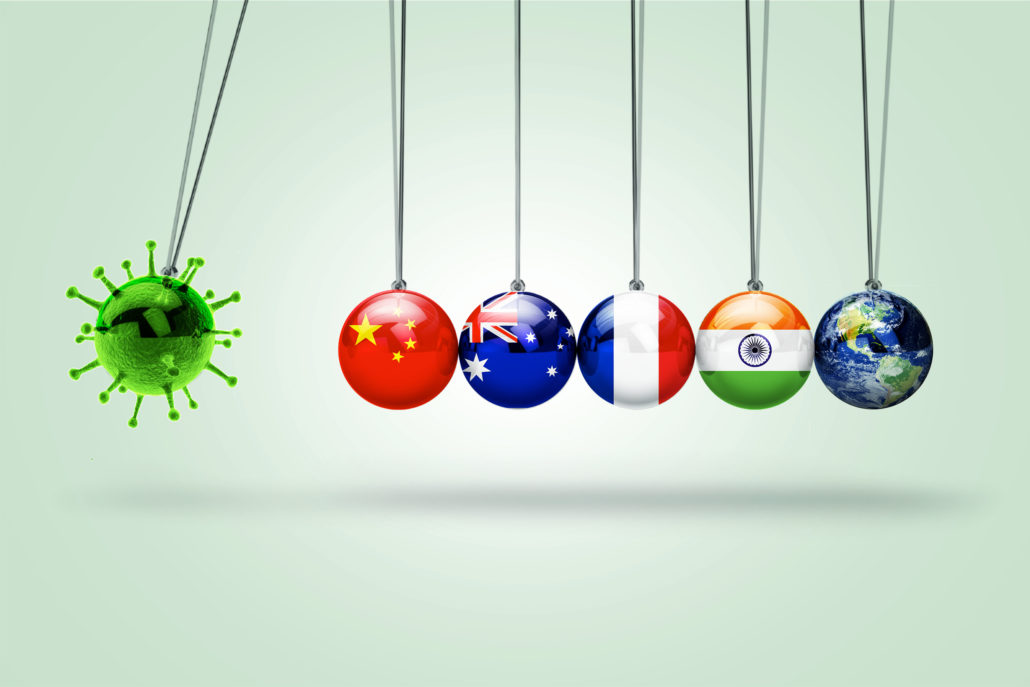
Since the World Health Organisation labelled the Coronavirus disease (COVID-19) a pandemic, a plurality of countries around the world have taken drastic measures to limit the impact and proliferation of the disease.
Italy and Spain fail to flatten the curve
With 24,747 cases and 1,809 deaths by this Sunday, Italy’s experience has offered an alarming example for what other European countries can expect to happen if the spread of the virus is not slowed down.
Following Italy, Spain has also seen its number of coronavirus deaths more than double in a day to 288.
Spaniards, housebound by law since Saturday, emerged on balconies and stood at windows on Sunday evening to whoop and beep horns in appreciation of emergency services dealing with Europe’s second-worst outbreak after Italy.
The government’s official coronavirus death toll rose by 152 overnight to 288. The number of infected rose by 2,000 cases to 7,753. Schools across the country are closed, keeping millions of children at home. Social gatherings are likewise banned.
And in the US, The Atlantic could only verify that 1,895 people have been tested for the coronavirus in the United States, about 10 percent of whom have tested positive. With a population of 327.2 million, this suggests that the American response to the coronavirus and the disease it causes, COVID-19, has been shockingly sluggish, especially compared with that of other developed countries.
Political scientist Ian Bremmer noted on Twitter that the spread of Corona virus in the US seems to be heading down the same scary trajactory as Italy.
In the UK, well-known scientists and politicians criticised Boris Johnson’s government’s strategy for fighting coronavirus, which takes a markedly different approach than most European governments and, despite Friday’s announcement, remains in place.
At the heart of that outcry: a policy to push for “herd immunity” to the virus, which would involve allowing at least 40 million Britons to become infected in the hopes of building up a long-term, society-wide resistance to the disease.
The U.K.’s approach means many healthy people in the country have to get the disease—while keeping the fatality rate as low as possible. It’s a marked break with the approach in much of the rest of the world, which is to stop people from getting coronavirus, period.
“I’ve been talking to other academics, science journalists, private companies, & gov’t people all of today and still struggling to understand this,” Devi Sridhar, Chair of Global Public Health at the University of Edinburgh tweeted. “The gov’t seems to be following flu playbook strategy. But this is not the flu. COVID-19 is much worse & health outcomes are sobering.”
US Economists recommmend Universal Basic Income to combat coronavirus impact on economy
Multiple lawmakers have proposed economic stimulus packages and universal basic income programs as the coronavirus begins to take a larger toll on the American economy.
On Friday, Rep. Tulsi Gabbard (D-Hawaii), a 2020 presidential candidate, introduced a resolution that would provide an income of $1,000 a month to every American “until COVID-19 no longer presents a public health emergency.”
In an effort to stop the spread of the virus, the U.S. has imposed travel bans on several countries hardest-hit by the pandemic, and dozens of large events and conferences have been canceled or postponed.
The stock market had its worst losses since 1987 on Thursday, though it’s unclear exactly how many workers will be affected.
Earlier in March, Jason Furman, a professor of the practice of economic policy at Harvard and chairman of the White House Council of Economic Advisers during the Obama administration from 2013 through 2017, penned an op-ed in the Wall Street Journal calling for fiscal stimulus in the form of a one-time cash payment in the face of the coronavirus pandemic.
“Scientists are working tirelessly to develop a vaccine,” Furman wrote. “But these are no reasons to delay putting out a generally applicable economic medicine that would help in any downturn.”
While the call for UBI cash payments has seen renewed life as the coronavirus upends the lives and paychecks of many Americans, it is also still polarizing.
You’re Likely to Get the Coronavirus eventually.
Most cases are not life-threatening, and a great number of people may barely show any symptoms, which is also what makes the virus COVID-19 a historic challenge to contain.
17 years ago, in Hong Kong, a boy fell sick with the flu and, despite intensive care, died. A month later, virulogists found the cause: HFN1, an ‘avian flu’, or what people now refer to as the ‘bird flu’. Unlike Coronavirus, the avian flu was killing almost every human it infected. Global response took over a month, but by the end of the year there were only 18 known cases in humans. Six people died.
“I think the likely outcome is that it will ultimately not be containable.”
Marc Lipsitch
Meanwhile, according to John Hopkins University, coronavirus deaths passed 6,500 worldwide as of today. Due to lack of testing in some parts of the world, the number may be higher
This virus is unlike most that capture public imagination: It is deadly, but not too deadly. It makes people sick, but not in predictable, uniquely identifiable ways. At the same time, we are far better equipped globally than we were with the “bird flu”, which took over a month. The new coronavirus was identified extremely quickly. Its genome was sequenced by Chinese scientists and shared around the world within weeks. Work on a vaccine is well underway.
But, as asserted by Harvard epidemiology professed Marc Lipsitch, it’s likely that most will eventually get infected. Lipsitch predicts that within the coming year, some 40 to 70 percent of people around the world will be infected with the virus that causes COVID-19.
He, along with other experts, clarify that for a majority of those infected, it’s likely they’ll only experience “mild disease or may experience no symptoms at all.”
“cold and flu season” could become “cold and flu and COVID-19 season.”
As with influenza, while it is often life-threatening to people with chronic health conditions and of older age, most cases pass without medical care. The Atlantic go into more detail in this article.

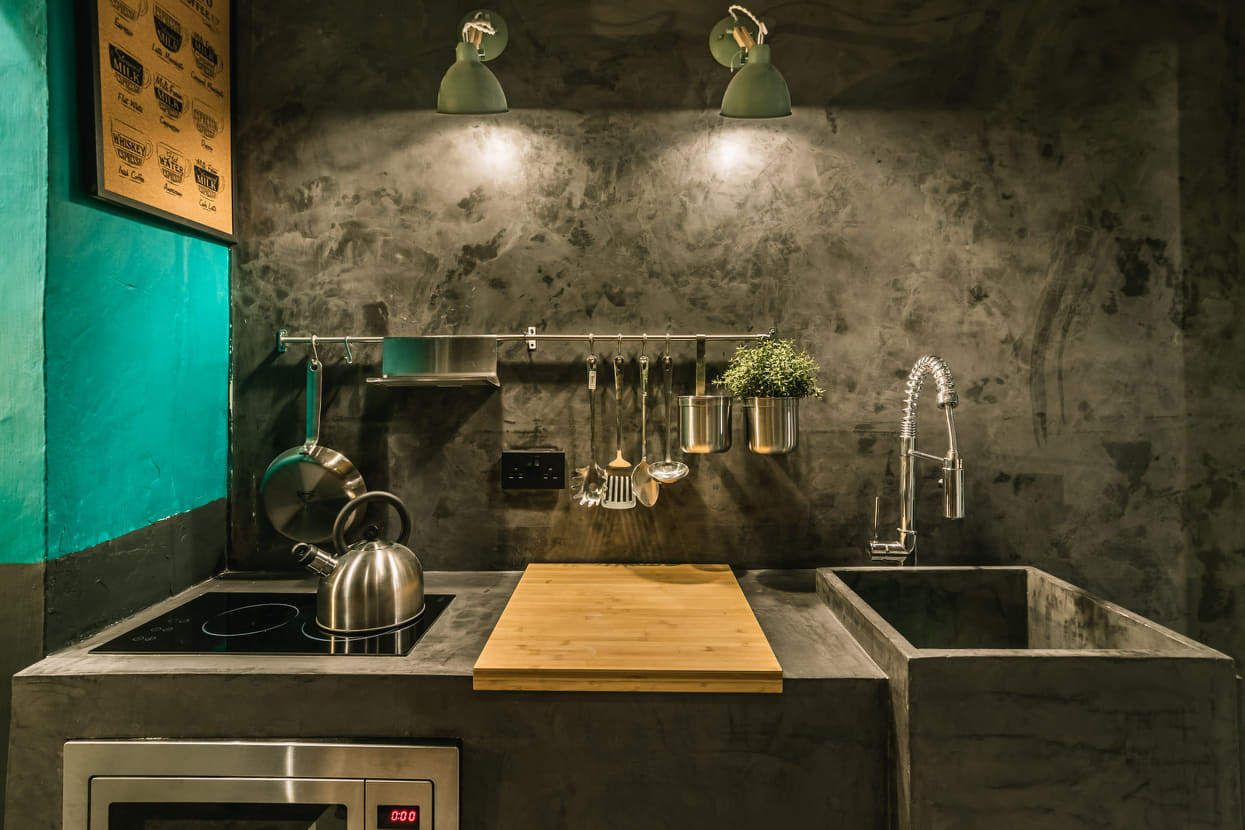
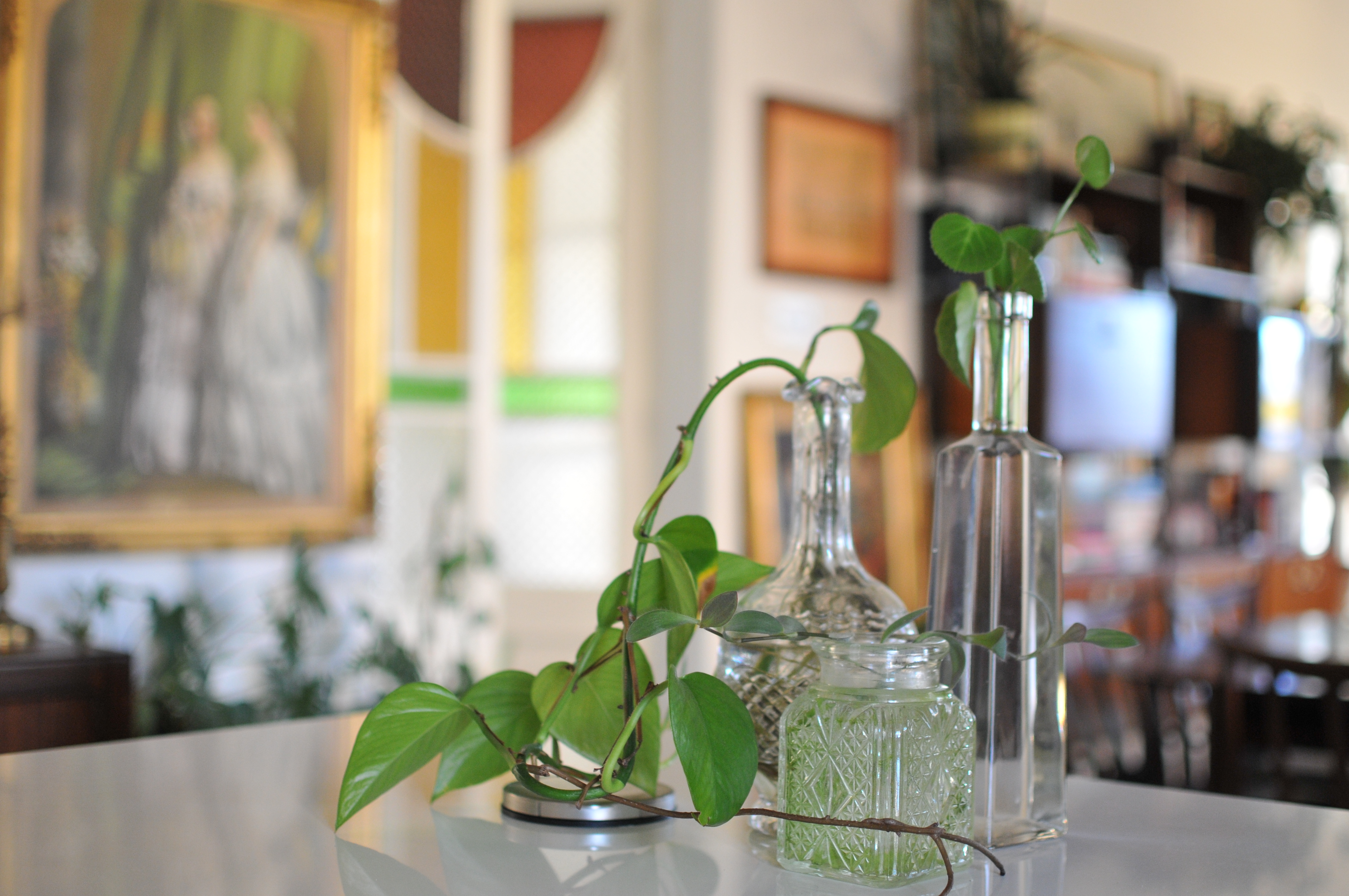
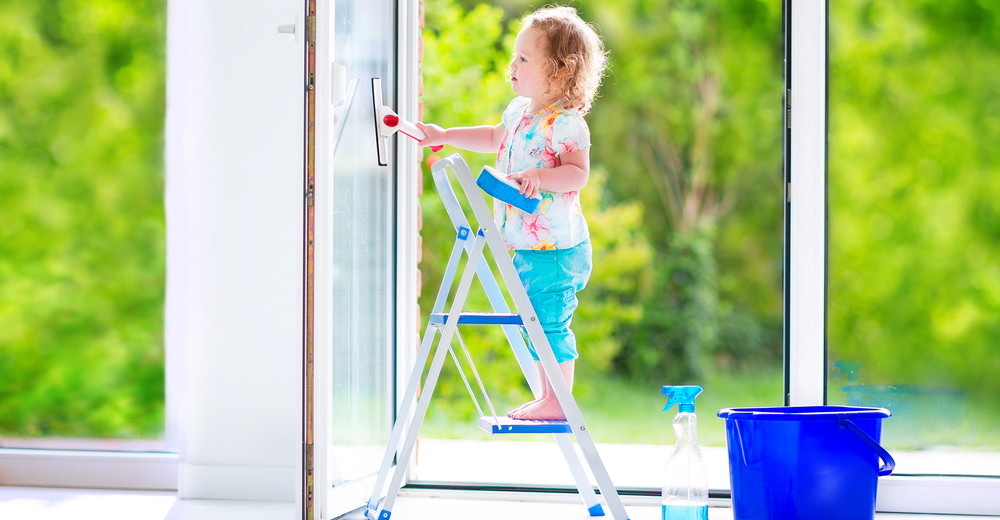







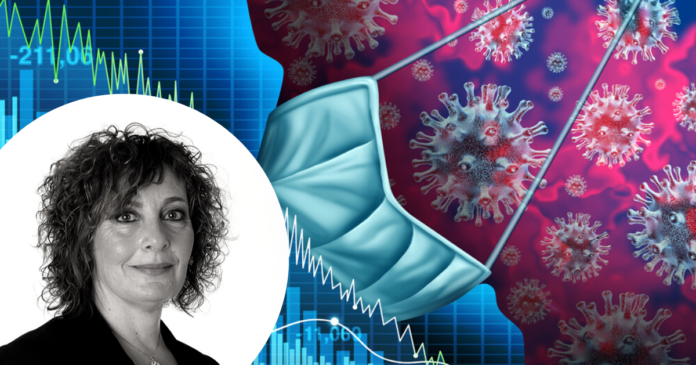


![11 Maltese Online stores that deliver furniture, furnishings & home decor [20/08]](https://blog.house.mt/wp-content/uploads/2020/08/1-12-218x150.png)